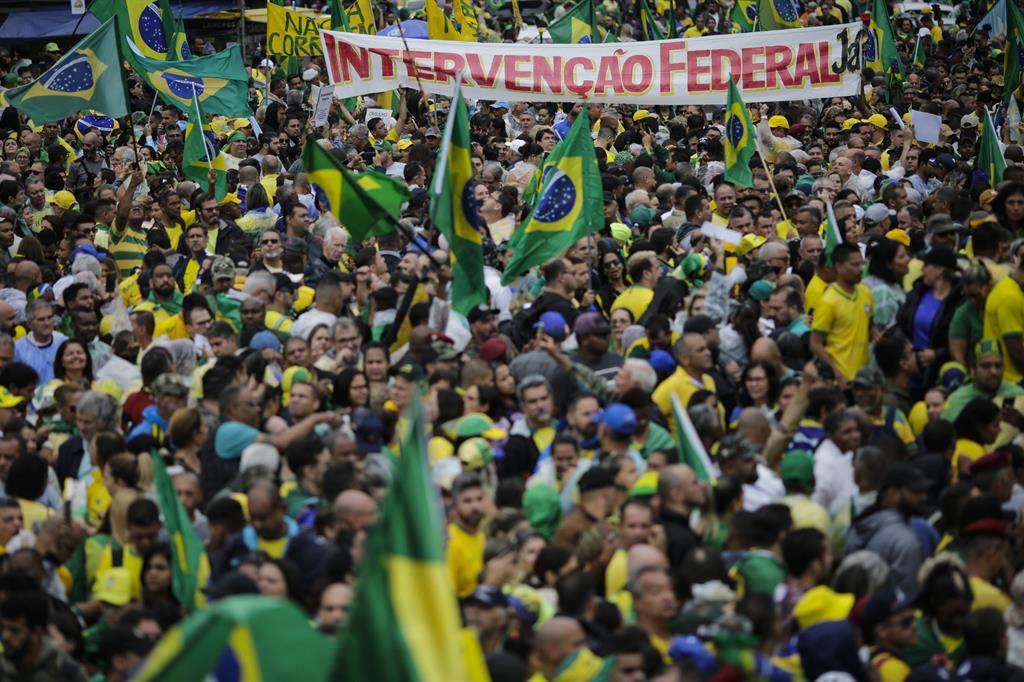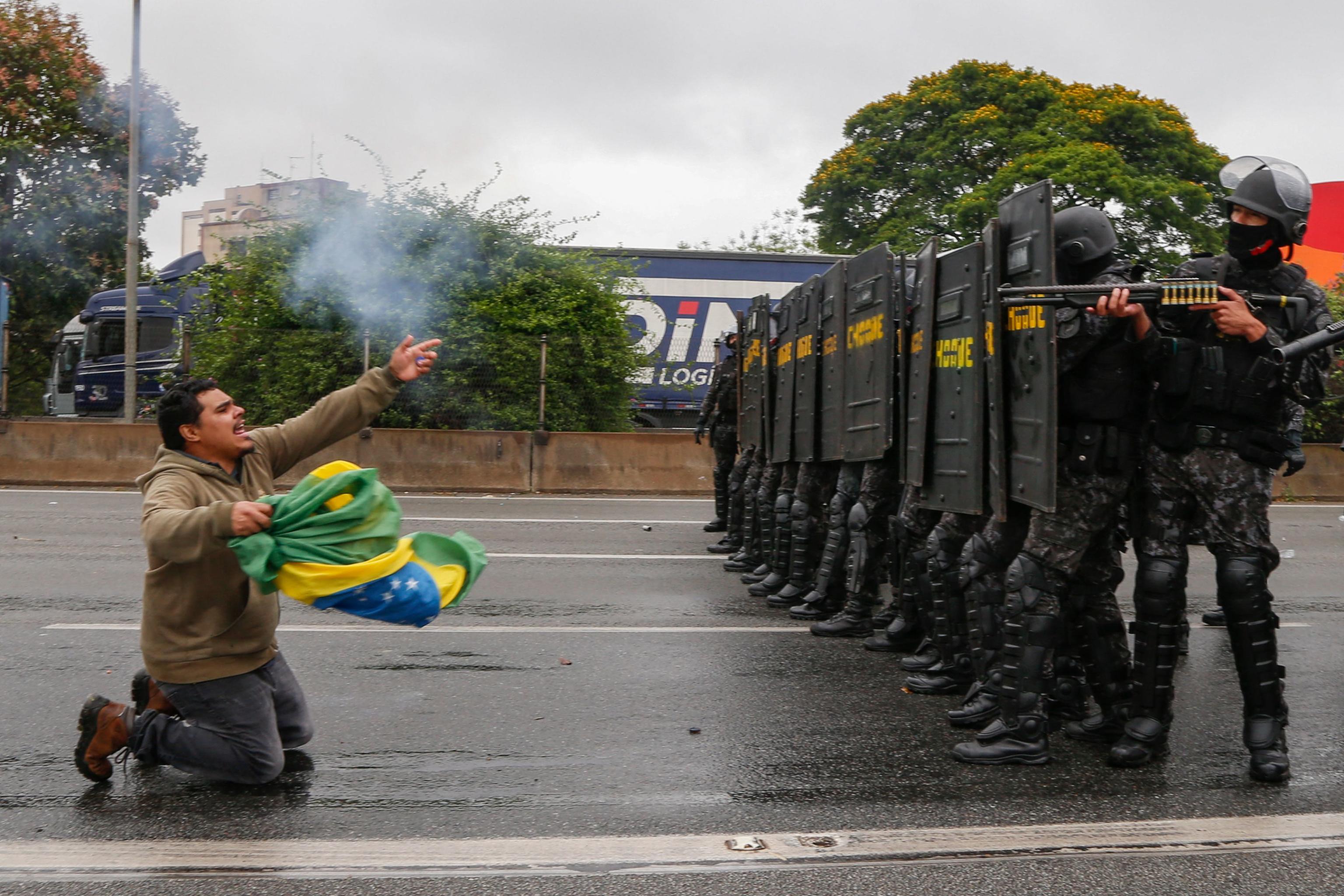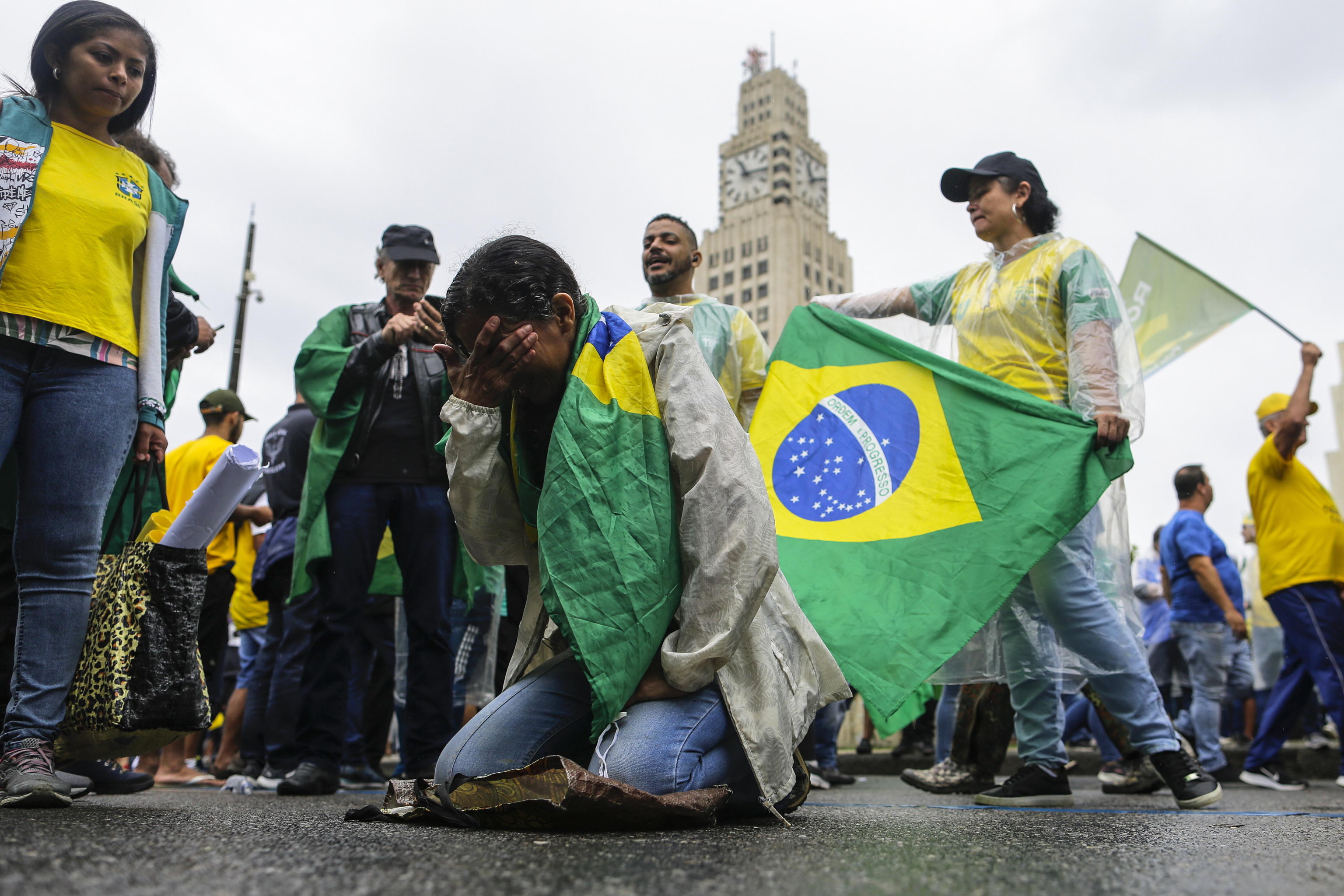Demonstration in Rio in favor of military intervention against Lula-Ansa’s victory
Also yesterday, three days after the announcement by the electoral authorities of Victory by Luiz Inacio Lula da Silva17 of the 26 Brazilian states remained hostage to the Bolsonarian mob. The truck drivers, accompanied by thousands and thousands of militants, continued to block hundreds of lines of communication, indifferent to the tear gas used by the state police in charge of the evacuation. Agents managed to balance the forces to avoid violence and conflict, although there were isolated incidents. After hours of to and fro, they managed with difficulty to open a passage here and there. However, thousands of tons of goods got stuck in the protests, causing many problems for businesses. Even Toyota had to stop production at the Sorocaba, Indaiatuba and Porto Feliz plants due to non-arrival of the components.
Eviction of the police from the road to Castelo Branco, outside of San Paolo – Ansa
However, total paralysis has not yet occurred. For this reason, the outgoing president’s followers resort to “plan b”. That is, they multiplied the pressure on the armed forces with sit-ins and demonstrations in front of barracks and headquarters in ten states, in addition to the constant meeting in front of the Brasilia General Staff in the hope that the troops will be seduced by the sirens of the coup and rebel against the generals. It is clear that the latter do not want to take a stand. Moreover, they are not the target of the Bolsonarian people, but of the middle cadres, who are very sensitive to the ultra-conservative calls and are grateful to the current leader for the benefits achieved during his mandate. In Rio, near the “Army Palace”, there was the densest demonstration shouting: “Federal intervention”. An expression that replaces “coup d’etat” in Bolsonarian jargon to avoid getting in trouble with the authorities. “We come to ask your help, let’s not sink into communism,” some cried, while others sang and prayed. Analysts noted that the only ones who didn’t officially acknowledge the polls among the president’s allies were the various evangelical groups. The closest shepherds remained silent, unlike, for example, the powerful Association of Agricultural Producers, which said it respected the will of the people. And the influence of the former on believers – including many residents of the favelas where Pentecostal sects are particularly active – is strong. It’s difficult to get them to retreat. Everywhere, militants said they were determined to move forward.
Bolsonaro supporters demonstrate in Rio – Ansa
Certainly Jair Bolsonaro’s late speech did nothing to ease tensions. His ambiguous words about “injustices in the electoral system” were interpreted by the crowd as a call for “resistance” in hopes of convincing the military.
It’s hard to believe that the ultra-right leader wasn’t aware of this. Well-informed sources say the very short speech – just under three minutes – was prepared by himself, based on a draft written by the center-right front and delivered on Monday. However, the President preferred not to read it immediately, but to take his time and review the text, which he considered too soft. Finally, all references to the transition have been removed. It was secretary Ciro Nogueira who officially announced the launch today. However, the process seems destined to run in parallel with the street protests that Bolsonaro has not asked to end. Walking the fine line between said and unspoken, truth and post-truth, silence and shouting, Brazil seems destined to walk the next two months. A narrow road, on which the winner Lula also walks. The latter has chosen to remain on the fringes of controversy. And above all, to keep supporters and activists from taking to the streets. He doesn’t want his people lighting the fuse and causing chaos to explode.




